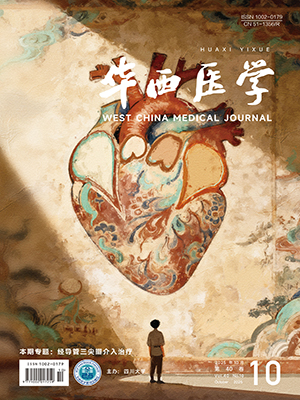| 1. |
孙莹莹. 生活希望计划干预联合认知行为干预对重症心力衰竭患者希望水平、治疗依从性及自我效能感的影响. 临床研究, 2021, 29(9): 159-160.
|
| 2. |
邓顺玉. 认知行为干预在重症心力衰竭患者中的应用研究. 基层医学论坛, 2024, 28(11): 133-136.
|
| 3. |
Brokmeier H, Kido K. Off-label use for direct oral anticoagulants: valvular atrial fibrillation, heart failure, left ventricular thrombus, superficial vein thrombosis, pulmonary hypertension-a systematic review. Ann Pharmacother, 2021, 55(8): 995-1009.
|
| 4. |
Toledo C, Andrade DC, Díaz HS, et al. Neurocognitive disorders in heart failure: novel pathophysiological mechanisms underpinning memory loss and learning impairment. Mol Neurobiol, 2019, 56(12): 8035-8051.
|
| 5. |
Pressler SJ, Harrison JM, Titler M, et al. APOE ε4 and memory among patients with heart failure. West J Nurs Res, 2017, 39(4): 455-472.
|
| 6. |
Shin MS, Kim JS, Hwang YS , et al. 152 - memory loss and decreased executive function are associated with functional limitation in patients with heart failure. J Card Fail, 2017, 23(8S): S58.
|
| 7. |
赵立刚, 芦梦迪. 参麦注射液对慢性心衰升压作用的临床观察. 世界最新医学信息文摘, 2015, 15 (90): 87-88.
|
| 8. |
Burgess S, Thompson SG; CRP CHD Genetics Collaboration. Avoiding bias from weak instruments in Mendelian randomization studies. Int J Epidemiol, 2011, 40(3): 755-764.
|
| 9. |
Greco M FD, Minelli C, Sheehan NA, et al. Detecting pleiotropy in Mendelian randomisation studies with summary data and a continuous outcome. Stat Med, 2015, 34(21): 2926-2940.
|
| 10. |
Bowden J, Davey Smith G, Burgess S. Mendelian randomization with invalid instruments: effect estimation and bias detection through Egger regression. Int J Epidemiol, 2015, 44(2): 512-525.
|
| 11. |
李媛妮. 认知功能及情绪与老年心力衰竭预后的关系. 国际精神病学杂志, 2022, 49(4): 656-658.
|
| 12. |
苗逢雨. 急性心力衰竭患者认知功能状况及其与临床结局的关联性研究. 北京: 北京协和医学院, 2022.
|
| 13. |
张紫嫣, 郑亮, 刘昕雯, 等. 中国认知障碍患者与心力衰竭发病关系的 meta 分析. 上海预防医学, 2021, 33(4): 327-334.
|
| 14. |
许三雄, 程蕾群. 老年慢性心力衰竭患者认知障碍的影响因素及列线图预测模型构建. 中国循证心血管医学杂志, 2023, 15(6): 694-697.
|
| 15. |
施倩茹, 冯红选, 侯晓夏, 等. 伴有认知功能障碍的慢性心力衰竭患者认知功能的影响因素及预后分析. 重庆医学, 2022, 51(22): 3915-3919.
|
| 16. |
姚尧. 轻度认知功能障碍评估在老年心力衰竭患者管理中的应用. 安徽芜湖: 皖南医学院, 2021.
|
| 17. |
王佳弘. 心力衰竭患者认知功能与睡眠质量及生活质量的相关性研究. 北京: 北京协和医学院, 2021.
|
| 18. |
王雪梅. 慢性心力衰竭患者中医辨证分型与认知功能障碍相关性研究. 哈尔滨: 黑龙江中医药大学, 2021.
|
| 19. |
程凤, 王媛媛, 李美璇, 等. 以目标为导向的护理干预对慢性心力衰竭患者疾病认知水平及生活质量的影响. 中国校医, 2022, 36(11): 871-873, 876.
|
| 20. |
王平平, 程骞, 王雪. 基于 IMB 理念的认知行为干预对慢性心力衰竭患者心功能及生活质量的影响. 临床与病理杂志, 2021, 41(10): 2400-2406.
|
| 21. |
王律. 慢性心力衰竭患者膳食模式、肥胖亚型与认知功能受损的关系. 山东大学, 2021.
|
| 22. |
Kim J, Shin MS, Hwang SY, et al. Memory loss and decreased executive function are associated with limited functional capacity in patients with heart failure compared to patients with other medical conditions. Heart Lung, 2018, 47(1): 61-67.
|




